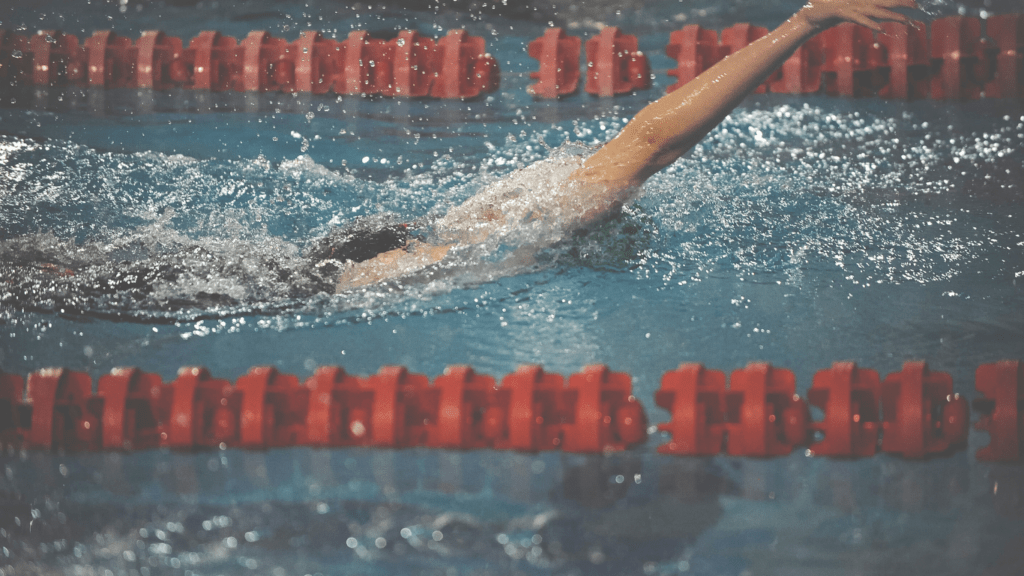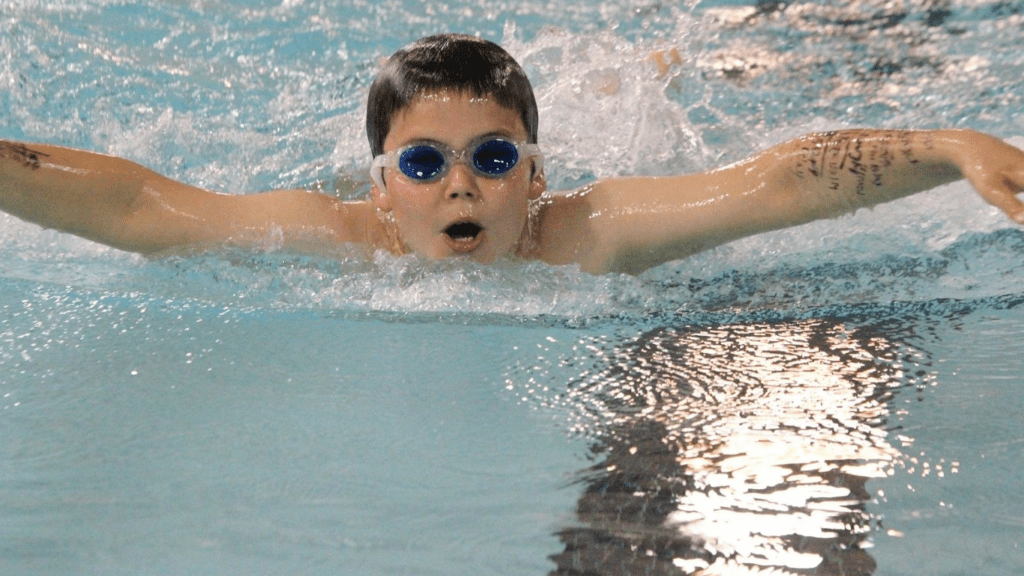Diving into the world of adaptive swimming competitions, I’ve witnessed a remarkable surge in participation and recognition. As the inclusivity of sports gains momentum, adaptive swimming stands out as a shining example of determination and skill. From local meets to international championships, the pool has become a stage where athletes of all abilities showcase their prowess and passion for the sport.
In my exploration of this dynamic landscape, I’ve uncovered inspiring stories of resilience and achievement that transcend physical limitations. The growth of adaptive swimming competitions not only highlights the athletic abilities of individuals with disabilities but also fosters a sense of community and empowerment. Join me as we delve deeper into the evolving realm of adaptive swimming and celebrate the triumphs of these extraordinary athletes.
The Rise of Adaptive Swimming Competitions

Adaptive swimming competitions have seen a remarkable surge in popularity and recognition in recent years, showcasing the exceptional determination and skill of athletes of all abilities. As these competitions continue to gain traction, they not only highlight inspiring stories of resilience and achievement but also emphasize the strong sense of community and empowerment they bring to participants and spectators alike.
- Origins and Historical Context
The origins of adaptive swimming competitions can be traced back to the mid-20th century, emerging as a response to the growing recognition of the importance of inclusivity in sports. Initially developed to provide opportunities for individuals with physical disabilities to showcase their swimming prowess, these competitions have evolved significantly over the years. From humble beginnings to becoming integral parts of national and international sporting events, adaptive swimming competitions have come a long way in promoting diversity and breaking barriers. - Current Popularity and Global Impact
In the contemporary sports landscape, adaptive swimming competitions have garnered significant attention and appreciation on a global scale. With the rising awareness of the importance of inclusivity and diversity in sports, these competitions have captured the hearts of audiences worldwide. Athletes participating in adaptive swimming events not only showcase their athletic abilities but also serve as beacons of inspiration for individuals facing similar challenges. The global impact of adaptive swimming competitions extends beyond mere competition, fostering a sense of unity and empowerment among participants and spectators, making them a significant force for positive change in the sporting community.
Understanding Adaptive Swimming
Adaptive swimming is a vital aspect of inclusive sports, allowing athletes of all abilities to showcase their talent and determination. Let’s delve deeper into the key aspects that make adaptive swimming competitions so remarkable.
Classification and Categories
In adaptive swimming competitions, athletes are classified based on their functional ability to ensure fair competition. These classifications consider factors like impairments in muscle power, limb loss, coordination, and more. Categories such as S1 to S10 are used, with lower numbers indicating a higher degree of impairment. This precise classification system enables athletes to compete against others with similar abilities, enhancing the fairness and excitement of the competitions.
Equipment and Accessibility Features
Adaptive swimming competitions offer specialized equipment and accessibility features to cater to the diverse needs of athletes. From starting blocks with handrails for stability to adaptive swimsuits designed for comfort and performance, every aspect is thoughtfully considered to provide a level playing field. Accessible facilities, such as pool lifts and ramps, ensure that athletes with disabilities can fully participate and compete without barriers. The integration of cutting-edge technology and inclusive design makes adaptive swimming competitions truly accessible and empowering for all athletes.
Key Benefits of Adaptive Swimming Competitions
Adaptive swimming competitions offer a range of benefits that extend beyond the realm of sports. Here are some key advantages:
Physical and Psychological Benefits
Engaging in adaptive swimming competitions presents unique opportunities for athletes with disabilities to enhance their physical and psychological well-being. The rigorous training and competitive nature of these events not only improve cardiovascular health and muscle strength but also boost self-esteem and confidence levels. For individuals with disabilities, the sense of achievement derived from participating in these competitions can have a profound impact on their overall mental health and outlook on life.
Promoting Inclusivity in Sports
One of the most significant benefits of adaptive swimming competitions is their role in promoting inclusivity in sports. By providing a platform for athletes of all abilities to showcase their skills and compete on equal footing, these events challenge traditional notions of athleticism and redefine the boundaries of sports excellence. Through inclusivity, adaptive swimming competitions foster a sense of community, respect, and admiration for the diverse talents and capabilities of all athletes, regardless of their physical limitations.
Major Events and Their Influence
In the realm of adaptive swimming competitions, two prominent platforms, the Paralympics and Special Olympics, have played pivotal roles in shaping the landscape of inclusive sports.
Paralympics and Special Olympics
As an adaptive sports mega-event, the Paralympics stands out as the pinnacle of athletic excellence for athletes with physical impairments. It not only showcases the extraordinary abilities of participants but also serves as a catalyst for changing attitudes towards disability in sports. On the other hand, the Special Olympics provides a platform for athletes with intellectual disabilities to compete at a global level, fostering a sense of unity, respect, and camaraderie among participants from around the world.
National and International Competitions
In addition to the Paralympics and Special Olympics, national and international adaptive swimming competitions play a crucial role in promoting inclusivity and diversity in sports. These events offer athletes with disabilities the opportunity to showcase their talent on a broader stage, inspiring others and challenging perceptions of traditional athleticism. Moreover, by bringing together individuals from various backgrounds and abilities, these competitions create a supportive and inclusive environment that celebrates the unique strengths and skills of each participant.
Challenges Facing Adaptive Swimming
Swimming competitions for athletes with disabilities face several challenges that can impact the growth and development of the sport. These challenges include:
Funding and Resource Allocation
Ensuring adequate funding and resource allocation for adaptive swimming programs is crucial for their sustainability and growth. Lack of financial support can limit access to training facilities, specialized equipment, and coaching staff, hindering the development of athletes with disabilities. Securing funding from government agencies, private sponsors, and charitable organizations is essential to create equal opportunities for all swimmers.
Awareness and Public Perception
Raising awareness about adaptive swimming and changing public perception towards athletes with disabilities are ongoing challenges. Overcoming stereotypes and misconceptions about the capabilities of swimmers with disabilities is vital to promote inclusivity and encourage participation in adaptive swimming programs. Education campaigns, media coverage of events, and showcasing success stories of athletes can help shift societal attitudes towards a more inclusive and supportive environment for adaptive swimmers.


 is a seasoned fitness expert with a special focus on swimming and holistic health strategies. With years of experience as a competitive swimmer and fitness coach, Patricia offers readers a wealth of knowledge on optimizing performance and maintaining a balanced lifestyle. Her writing on Swim Fast Stay Fit reflects her commitment to empowering others with practical advice and motivational insights. Patricia’s approach integrates advanced training techniques with accessible wellness tips, aiming to help individuals achieve their personal fitness goals and enhance their overall quality of life. Through her engaging articles, Patricia inspires readers to embrace a comprehensive approach to health, combining effective exercise routines with mindful nutrition and self-care practices.
is a seasoned fitness expert with a special focus on swimming and holistic health strategies. With years of experience as a competitive swimmer and fitness coach, Patricia offers readers a wealth of knowledge on optimizing performance and maintaining a balanced lifestyle. Her writing on Swim Fast Stay Fit reflects her commitment to empowering others with practical advice and motivational insights. Patricia’s approach integrates advanced training techniques with accessible wellness tips, aiming to help individuals achieve their personal fitness goals and enhance their overall quality of life. Through her engaging articles, Patricia inspires readers to embrace a comprehensive approach to health, combining effective exercise routines with mindful nutrition and self-care practices.
